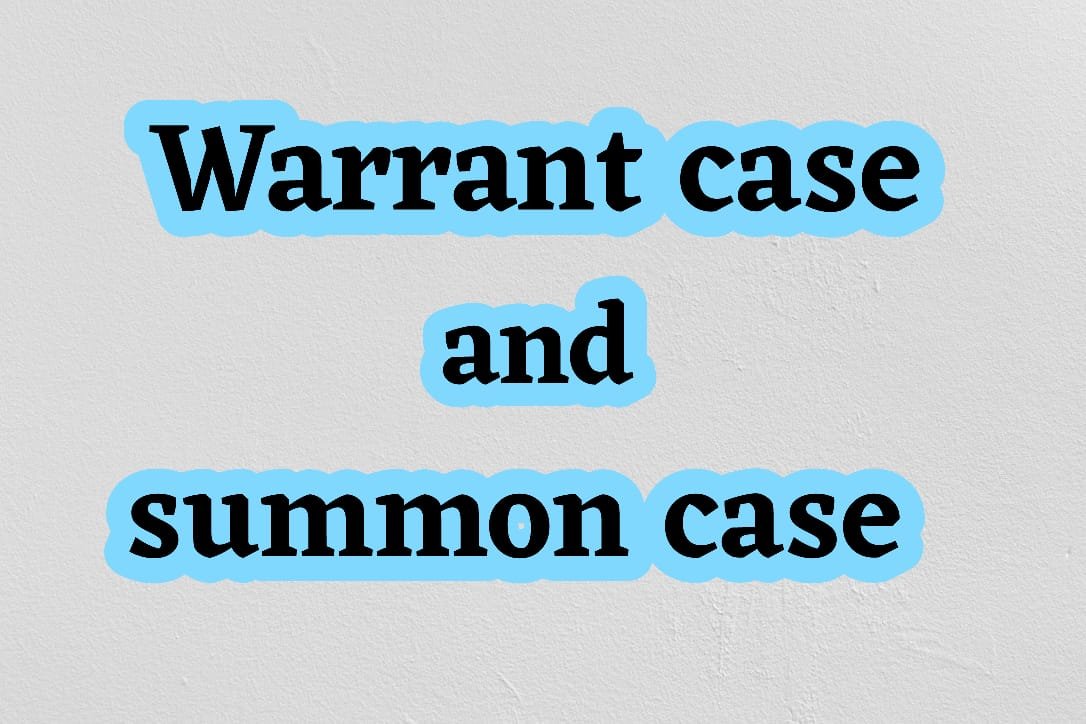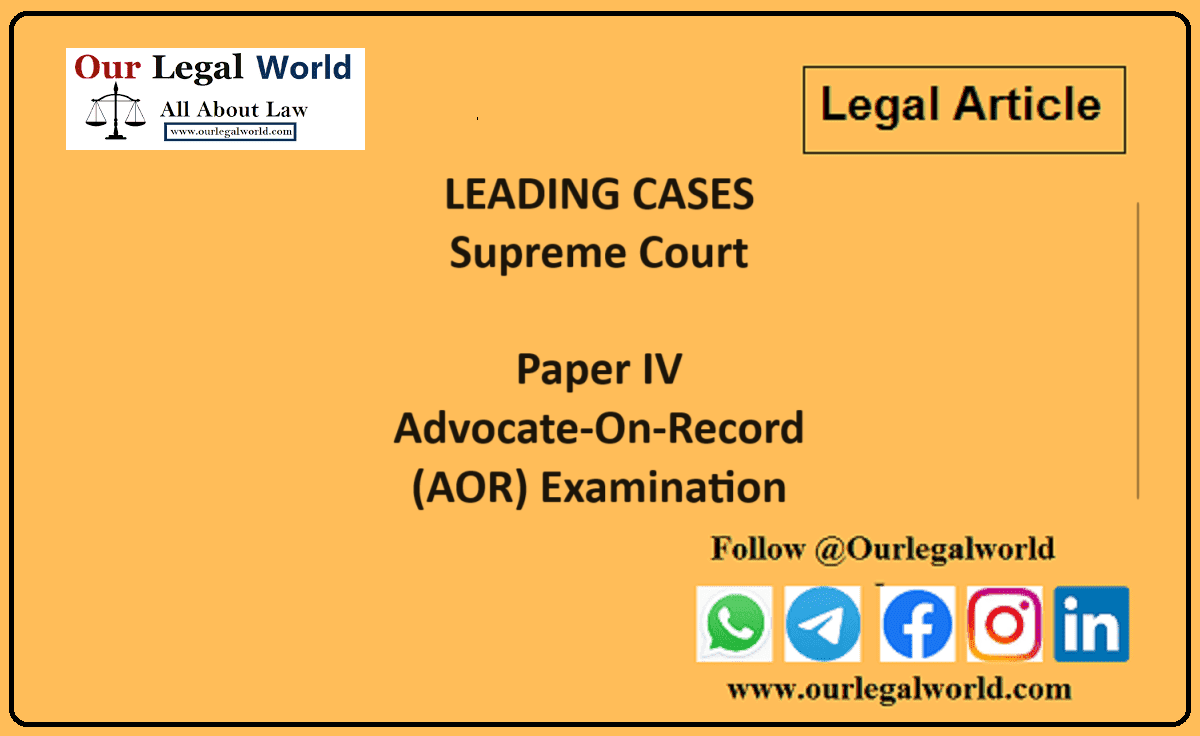Difference between procedure of trial for Warrant and Summon Case
INTRODUCTION
In cases instituted on a police report, a lot of record made during the investigation by police is made available to the court and to the accused person. Chapter XIX of Code of Criminal Procedure is considered under three heads:
- Cases instituted on a police report [Sec. 238-243]
- Cases instituted otherwise than on a police report [Sec. 244-247]
- Conclusion of trial [Sec 248-250]
Overview of Charge (ALLEGATIONS) under CRPC
There are two categories in which the criminal cases can be classified on the provisions laid down in the code:-
Summon Case:- Definition of summon case is given in 2(x)means, Summon case means a case relating to an offence not being a warrant case.
Warrant Case: This means a case relating to an offence punishable by death, imprisonment for life or imprisonment for a term exceeding two years.
The criteria of summons case and warrant case determine the duration of punishment in any offence is punishable with fine of Rs.50/- then such matter is summon case, a case of Public Prosecutor v. Hindustan Motors, Andhra Pradesh-1970.
The issue of summon or warrant in any case does not change the nature of the case, supposing warrant is issued in a summon case it does not make the case a warrant case, in case of Padamnath v. Ahmad Dobi-1970.
Procedure of trial of Warrant Case:- lays down the procedure for a warrant case:-
A.Cases must be instituted upon police report:- Sec.238 of the code lays down the procedure of trial of warrant cases instituted upon police report and according to it procedure of trial is as under :-
1. Supply of copies of documents to the accused- When the accused appears or is brought before Magistrate at the commencement of the trial, the Magistrate shall satisfy himself that he has supplied to the accused copies of the police report, FIR, confession, etc. as required by Sec. 207.
2. Discharge of accused: If after (i) considering the police report and other documents, (ii) examining the accused, and (iii) giving the prosecution and the accused an opportunity of being heard, the Magistrate considers that the charge preferred against the accused is groundless, he must discharge him, and record his reasons for doing so [Sec 239].
In State of H.P v. Krishan Lal (AIR 1987 SC 773), the judge, after considering the material on records, found that a prima facie case made out against the accused. But the successor judge on the same material passed on order of discharge. Held that no order of discharge could be passed by the successor in office because such an order would amount to review of the earlier order no permitted by the CPRC.
3. The framing of charge:-If the magistrate is of the opinion that there is a ground for presuming that the accused has committed an offence and is competent to try such offence which can adequately punish the accused in his opinion. Then the charge shall be framed against the accused in writing and trial will start.
Case of Col.S.Kashyap v. State of Raj.1971.
Century Spg. & Mfg. Co. v. State of Maharashtra (1972) 3 SCC 282
4. Conviction of plea of guilty:-if the accused pleads guilty the magistrate shall record the plea and may in his discretion convict him. [Sec. 241]
5. Evidence for the prosecution: – If the accused refuses to plead guilty and claims to be tried, the magistrate shall fix a date for the examination of the witnesses, u/s 242(1).
The Magistrate may on the application of the prosecution, issue a summons to any of its witnesses directing him to attend or to produce any document/ thing under Section 242(2).
6. Evidence for defence:- After the prosecution evidence is over, the accused shall be called upon to enter upon his defence and produce his evidence; if he puts in any written statement, the Magistrate shall file it with the record under section 243(1).
B. Cases instituted otherwise than upon police report:- [Section 244-247]
- Evidence for Prosecution [Sec. 244]:
- Discharge of accused [Sec 245]
- Framing of Charge [Sec 246]
- Evidence for defence [Sec 247]
Case Law:-
- State v. Punamchand, 1987 CrLJ 1232 (M.P)
- Luis de Piedade Lobo v. Mahadev, 1984 CrLJ 513 (Bom)
- Sayeeda Farhara Shamin v. State of Bihar (2008) 8 SCC 218
- Substance of accusation to be stated [Sec 251]
- Conviction on plea of guilty [252]
- Conviction on plea of guilty in absence of accused in petty cases. [253]
- Procedure when not convicted: Hearing of the prosecution/ defence cases [ 254(1)]
- Acquittal or conviction [255]
Withdrawal of Complaint
- Ganesh Naryan Sathe (1889) 12 Bom 600
- T. Venkatalakshmi v. State 1991 CrLJ 749 (A.P)







![Tax Law Internship at Legum Attorney [Chamber of Ashish Panday], Delhi : Apply by 15th May 2025](https://www.ourlegalworld.com/wp-content/uploads/2025/05/IMG_0113-min.png)

